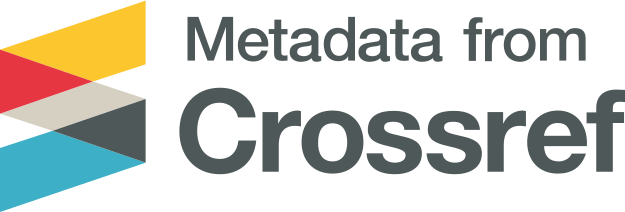Strategi Peningkatan Kinerja Manajemen Keuangan dan Non Keuangan: Pendekatan Balance Scorecard
DOI:
https://doi.org/10.35838/jrap.2023.010.01.01Keywords:
Balanced Scorecard, Customer Service, Financial Management, Internal BusinessAbstract
This study aims to describe the performance of school-based financial and non-financial management using a balanced scorecard approach. This research focuses on the public sector which describes the performance at SMK Al-Fattah Kalitidu, Bojonegoro Regency, East Java. The method used is a quantitative descriptive. The sample in this study amounted to 112 respondents. The analytical tool used in this study uses SPSS software. The results of the study show that the performance of the financial perspective at Al-Fattah Kalitidu Vocational School in the 2021-2022 academic year is quite economical, quite efficient, and very effective. The customer aspect also shows that SMK Al-Fattah Kalitidu is in the very good category. While the internal business perspective includes two aspects, namely the aspect of innovation is in the very good category and after-sales service is in the good category. Also from a learning and growth perspective, Al-Fattah Kalitidu Vocational School is in a very satisfying category. This research provides an understanding of school success in managing financial aspects, customer service, internal business, and student learning and growth.
Downloads
References
Al Salman, S., Alkathiri, M., & Khaled Bawaneh, A. (2021). School off, learning on: identification of preference and challenges among school students towards distance learning during COVID19 outbreak. International Journal of Lifelong Education, 40(1), 53-71. https://doi.org/10.1080/02601370.2021.1874554
Alimudin, A., Falani, A. Z., Mudjanarko, S. W., & Limantara, A. D. (2019). Analisis Pengaruh Penerapan Perspektif Balanced Scorecard Terhadap Peningkatan Kinerja UMKM. Ekonika : Jurnal ekonomi universitas kadiri, 4(1), 1-17. https://doi.org/10.30737/ekonika.v4i1.337
Amin, C., Suad, Santosa, & Utaminingsih, S. (2020). Perspektif Balanced Scorecard Terhadap Kinerja Sekolah Di Sdit Lentera Hati. Manajemen Pendidikan, 15(1), 19-33. https://doi.org/10.23917/mp.v15i1.10689
Bustomi, Z., Indriati, L. O., Rachmawati, P. A., & Yaqin, M. A. (2021). Pengukuran Kinerja Sekolah Menggunakan Balanced Scorecard. ILKOMNIKA: Journal of Computer Science and Applied Informatics, 3(1), 30-50. https://doi.org/10.28926/ilkomnika.v3i1.138
Hidayatulloh, M. A. (2020). Pendekatan Integrated Performance Measurement Systems (LPMS) Untuk Mengukur Kinerja Sekolah Kejuruan. JISO: Journal Of Industrial And Systems Optimization, 3(1), 47-52. https://doi.org/10.51804/jiso.v3i1.47-52
Hiktaop, K., & Meilvidiri, W. (2021). Identifikasi Sistem Perencanaan Strategi Pengelolaan Kinerja Berbasis Balance Scorecard. Jurnal Ilmu Ekonomi & Sosial, 21(1), 41-59. https://doi.org/10.35724/jies.v12i1.3327
Junaini, A. P., Wulanda, E. N., Juliano, M., Akbar, T., Isneli, Y., & Azhari, I. P. (2022). Penerapan Sistem Pengendalian Manajemen Terhadap Kinerja Keuangan Pada Umkm Karya Oli. Research In Accounting Journal, 2(4), 543-549. https://doi.org/10.37385/raj.v2i4.1056
Luckyta, A. C., Kartika, L., & Rahmawati, S. (2020). Evaluasi Kinerja Organisasi Menggunakan Balanced Scorecard. INVEST : Jurnal Inovasi Bisnis dan Akuntansi, 1(1), 38-44. https://doi.org/10.55583/invest.v1i1.15
Martono, S. (2021). Evaluasi Mutu Layanan Pendidikan Tinggi (Studi Pada Program Akuntansi Fakultas Ekonomika Dan Bisnis Universitas Kristen Satya Wacana). JEMAP: Jurnal Ekonomi, Manajemen, Akuntansi, dan Perpajakan, 4(1), 28-51. https://doi.org/10.24167/jemap.v4i1.2893
Nadeak, B. (2022). Manajemen Berbasis Sekolah (MBS). Penerbit Widina Bhakti Persada Bandung.
Niven, P. R. (2022). Balanced Scorecard Step-by-Step Maximizing Performance and Maintaining Results. John Wiley & Sons, Inc.
Parasuraman, A., Zeithaml, V. A., & Berry, L. L. (1985). A Conceptual Model of Service Quality and Its Implications for Future Research. Journal of Marketing, 49(4), 41-50. https://doi.org/10.2307/1251430
Permana, I. A. (2020). Analisis Penilaian Kinerja Dosen Menggunakan Metode Balance Scorecard (Studi Kasus STT Sangkakala). Jurnal Riset Ekonomi dan Bisnis, 13(2), 89-99. https://doi.org/10.26623/jreb.v13i2.2437
Ramdani, A. D., Sopandi, I., Suharyanto, E., Yustian, R., Wasliman, I., Dianawati, E., & Paramansyah, A. (2023). Konsep Balance Scorecard Dalam Strategi Bisnis dan Pendidikan serta Deskripsi Implementasinya pada SMK Negeri 6 Garut Melalui Pendekatan Manejemen Berbasis Sekolah (MBS). Reslaj: Religion Education Social Laa Roiba Journal, 5(6), 2885-2895. https://doi.org/10.47476/reslaj.v5i6.2669
Riwu, S. L., Wibowo, A., & Budiyatno, K. C. (2021). Penilaian Kinerja Rumah Sakit Dengan Menggunakan Pendekatan Balanced Scorecard: Systematic Review. Jurnal Manajemen Kesehatan Yayasan RS. Dr. Soetomo, 7(2), 267-283. https://doi.org/10.29241/jmk.v7i2.638
Rizki, V. L., & Sulistyan, R. B. (2022). Manajemen Sumber Daya Manusia. Widya Gama Press.
Simanjuntak, M. (2022). Inovasi Layanan Mutu Institusi Pendidikan Kristen Suatu Tinjauan Integratif. Jurnal Diakonia, 2(1), 1-21. https://doi.org/10.55199/jd.v2i1.45
Sudiantini, D. (2022). Manajemen Strategi. CV. Pena Persada.
Sulistyan, R. B., Pradesa, H. A., & Kasim, K. T. (2017). Peran Mediasi Kepuasan dalam Pengaruh Kualitas Pelayanan dan Citra Institusi terhadap Retensi Mahasiswa (Studi Pada Mahasiswa Perguruan Tinggi di Lumajang). Jurnal Penelitian Ilmu Ekonomi WIGA, 7(2), 77-87. https://doi.org/10.30741/wiga.v7i2.337
Suyatno, Rusdarti, & Sudana, I. M. (2016). Implementasi Balanced Scorecard Dalam Pengukuran Kinerja Manajemen Berbasis Sekolah. Educational Management, 5(2), 176-185.
Zahriani, N., Wahyuni, N. S., Siregar, D. K., & Pane, A. I. S. (2021). Upaya Kepala Sekolah Dalam Peningkatkan Kinerja Guru Dan Partisipasi Orangtua Terhadap Pelaksanaan Aktivitas Pembelajaran Anak Pada Masa Pandemi Covid19 Di TK Swasta Tunas Bangsa Medan Timur. PENDALAS: Jurnal Penelitian Tindakan Kelas dan Pengabdian Masyarakat, 1(1), 92-109. https://doi.org/10.47006/pendalas.v1i1.65
Downloads
Published
Issue
Section
License
Authors who publish with this journal agree to the following terms:
- Authors retain copyright and grant the journal right of first publication with the work simultaneously licensed under a Creative Commons Attribution-ShareAlike 4.0 International License that allows others to share the work with an acknowledgement of the works authorship and initial publication in this journal.
- Authors are able to enter into separate, additional contractual arrangements for the non-exclusive distribution of the journals published version of the work (e.g., post it to an institutional repository or publish it in a book), with an acknowledgement of its initial publication in this journal.
- Authors are permitted and encouraged to post their work online (e.g., in institutional repositories or on their website) prior to and during the submission process, as it can lead to productive exchanges, as well as earlier and greater citation of published work (See The Effect of Open Access).














